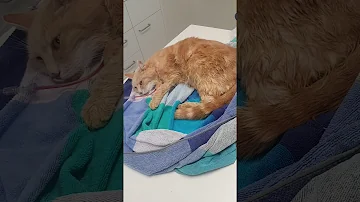Comment se conjugue le verbe conclure ?
Table des matières
- Comment se conjugue le verbe conclure ?
- Comment conjuguer le verbe conclure au présent de l'indicatif ?
- Comment on écrit conclure ?
- Quel est le participe présent du verbe conclure ?
- Qui conclut ou conclue ?
- How to conjugate avoir?
- What is list of verbs?
- What are all the French verb tenses?
- What are the forms of verbs?

Comment se conjugue le verbe conclure ?
Le verbe conclure se conjugue avec l'auxiliaire avoir. Le verbe conclure est de type transitif direct, transitif indirect, intransitif. La voix passive peut être utilisée pour le verbe conclure car celui-ci est de type transitif direct.
Comment conjuguer le verbe conclure au présent de l'indicatif ?
Indicatif
- Indicatif.
- Présent. je conclus. tu conclus. il conclut. ...
- j'ai conclu. tu as conclu. il a conclu. nous avons conclu. ...
- je concluais. tu concluais. il concluait. ...
- j'avais conclu. tu avais conclu. il avait conclu. ...
- je conclus. tu conclus. il conclut. ...
- j'eus conclu. tu eus conclu. il eut conclu. ...
- je conclurai. tu concluras. il conclura.
Comment on écrit conclure ?
conclure (se) v.pr. Se terminer, s'achever par quelque chose, avoir pour conclusion.
Quel est le participe présent du verbe conclure ?
Conjugaison du verbe conclure - Indicatif
| je | conclus |
|---|---|
| il/elle | conclut |
| nous | concluons |
| vous | concluez |
| ils/elles | concluent |
Qui conclut ou conclue ?
Celui-ci ne peut donc se conjuguer sur le modèle du verbe «aimer» au 1er groupe et «finir», au 2e groupe. On devra donc écrire «il conclut» au présent et non pas «il conclue», qui ne peut s'employer qu'au subjonctif présent.
How to conjugate avoir?
- Say "j'ai" to mean "I have. " In the first person present tense,the verb avoir takes the form "ai" (pronounced ay ).
- Use "tu as" when you want to say "you have. " In any situation where you would use the informal second-person pronoun "tu," conjugate "avoir" as "as."
- Conjugate avoir as "a" (pronounced "ah") in third person. ...
What is list of verbs?
- There are many types of verbs as below: Action Verbs Transitive Verbs Intransitive verbs Auxiliary verbs Stative verbs Modal verbs Phrasal verbs Irregular verbs Regular verbs
What are all the French verb tenses?
- The tenses used in French to place a verb in time: Présent: The present. Passé simple: The preterite or simple past. Passé compose: The past tense / narration tense. Passé antérieur: The past perfect. Imparfait : The present subjunctive. Futur simple: The future tense.
What are the forms of verbs?
- In English there are several different kinds of verbs. All verbs except modal auxiliary ("helping") verbs have at least three distinct forms: the simple (or uninflected or base) form: dance, play, type, hurry, concentrate, communicate, pull, lives, cut, put, bring, run, sing, drink, speak, write.













